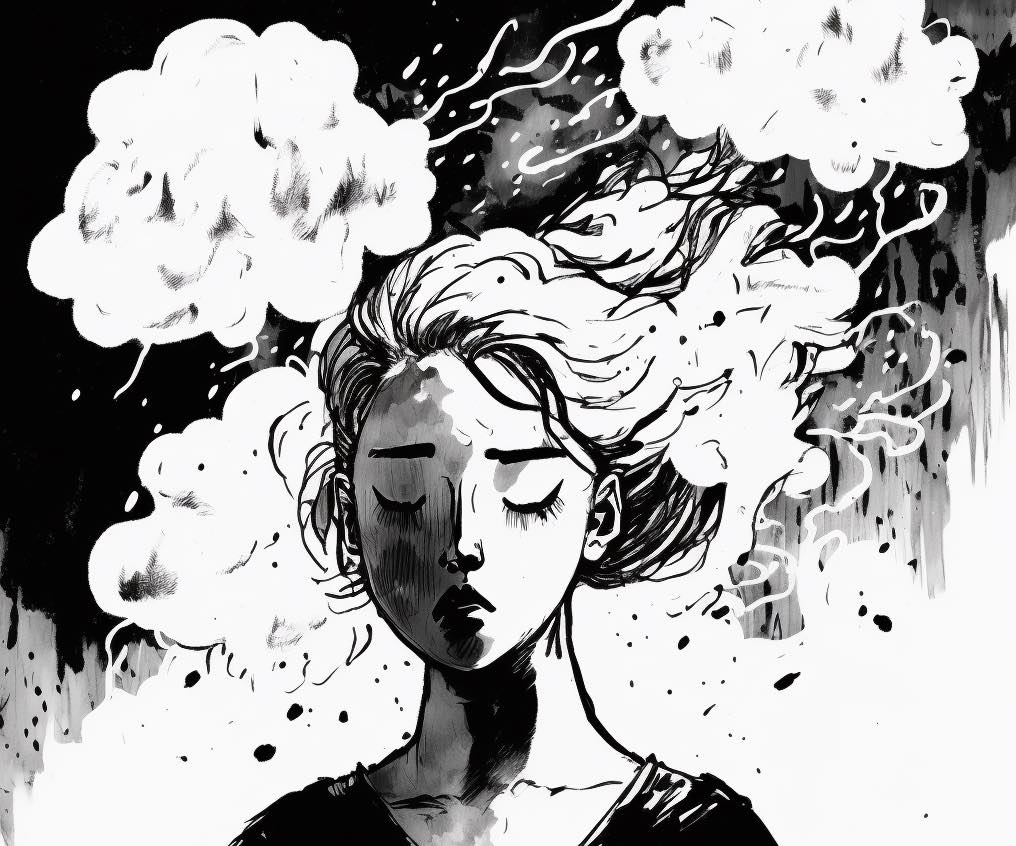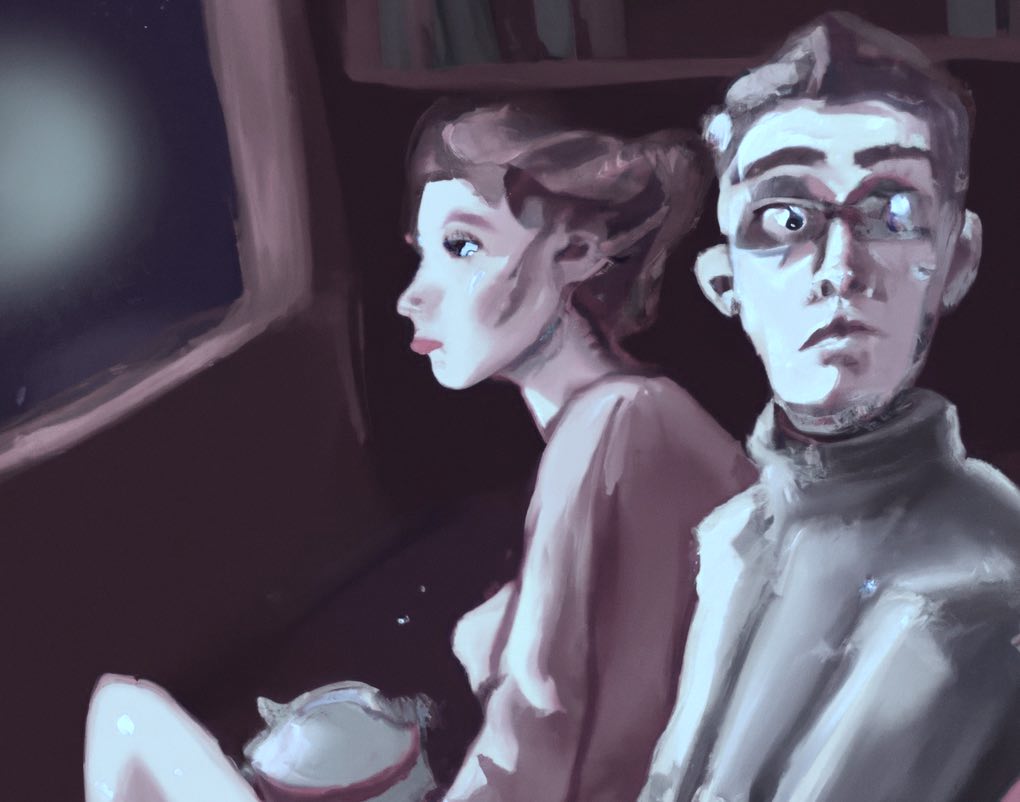I found myself plagued by intrusive thoughts that seemed to consume my every waking moment. No matter how hard I tried, I couldn’t shake the fear that something terrible would happen to my family if I didn’t perform certain rituals. My mind was a whirlwind of “what-ifs” and worst-case scenarios.
One ordinary day, as I was locking the front door, I found myself trapped in a vicious cycle of checking and rechecking, convinced that if I didn’t lock it perfectly, my family would be in danger. I felt overwhelmed by my inability to control these thoughts and the rituals they demanded.
But then, I remembered something I’d read about thought challenging, a technique used in cognitive-behavioral therapy to help manage obsessive thoughts. I decided to give it a try, hoping it might help me break free from the grip of my OCD.
I started by noticing the intrusive thought that was bothering me: “If I don’t lock the door perfectly, something terrible will happen to my family.” Identifying the thought helped me see it as separate from myself and not an inherent part of who I was.
Next, I worked on identifying the cognitive distortion behind my thought. In this case, it was catastrophizing – imagining the worst possible outcome. I asked myself, “Is it really true that if the door isn’t locked perfectly, something terrible will happen?”
I began to challenge the thought by considering the evidence. I reminded myself that I had locked the door countless times without any harm coming to my family. Moreover, the likelihood of a break-in occurring specifically because the door wasn’t locked perfectly was extremely low.
As I developed a rational counter-thought, I felt a sense of relief wash over me: “While it’s important to lock the door for safety, it doesn’t have to be perfect. The world is full of uncertainties, and it’s impossible to prevent every potential danger. My family is generally safe, and I’ve taken reasonable precautions.”
I repeated this rational counter-thought to myself, and the anxiety that had previously gripped me began to dissipate. By practicing thought challenging, I found a powerful tool to help me regain control over my OCD and to quiet the intrusive thoughts that had been causing me so much distress.
Though the journey wasn’t easy, I kept on with thought challenging, and it slowly but surely helped me reclaim my life from the clutches of OCD. With time and practice, I learned to embrace uncertainty and find peace in the knowledge that while I can’t control everything, I can control how I respond to my thoughts.
Vera, Illinois
What is Thought challenging?
Thought challenging (also known as cognitive restructuring) is a key component of CBT that involves identifying and disputing irrational or distorted thoughts. This technique can be helpful in managing the obsessive thoughts associated with OCD. Here’s a more detailed breakdown of the thought challenging process:
1. Notice your thoughts
Notice your thoughts: Become aware of your obsessive thoughts as they arise. It may help to write them down so you can examine them more closely.
2. Identify cognitive distortions
Recognize any irrational or distorted thinking patterns in your thoughts. Common cognitive distortions in OCD may include:
- Catastrophizing: Imagining the worst possible outcome
- Black-and-white thinking: Viewing situations as all good or all bad, with no middle ground
- Overgeneralization: Drawing broad conclusions from a single event
- Magical thinking: Believing that thoughts can cause harm or that rituals can prevent harm
3. Challenge the thoughts:
Examine the evidence for and against your obsessive thoughts. Ask yourself questions like:
- What’s the evidence supporting this thought?
- What’s the evidence against this thought?
- Are there alternative explanations or interpretations?
- How likely is it that my fear will come true?
4. Develop rational counter-thoughts
Replace your irrational or distorted thoughts with more balanced, rational alternatives. For example, if you have the obsessive thought, “If I don’t wash my hands 10 times, I’ll get a serious illness,” a more rational counter-thought might be, “I can’t completely eliminate the risk of illness, but washing my hands once with soap is sufficient to significantly reduce the risk.”
5. Practice and repetition:
Thought challenging is a skill that requires practice. Make it a habit to notice and challenge your obsessive thoughts as they arise. Over time, this can help you develop a more balanced and rational perspective on your fears.
Remember, while thought challenging can be a helpful self-help technique, working with a trained therapist who specializes in CBT can be even more effective in addressing OCD. It’s essential to consult a mental health professional for guidance and support tailored to your specific situation.
The old way | ocd.app | |
Cost | $$$ – Therapist costs | $ – Save money |
Evidence | No published evidence | 13 published studies |
Time burden | Long term | 3-4 minutes of your day |
Results | Takes months | 91% see first results within a week |
Privacy | Privacy concerns | Anonymous and private |
User feedback | Mixed | 4.8 / 5.0 (2,635 reviews) |



